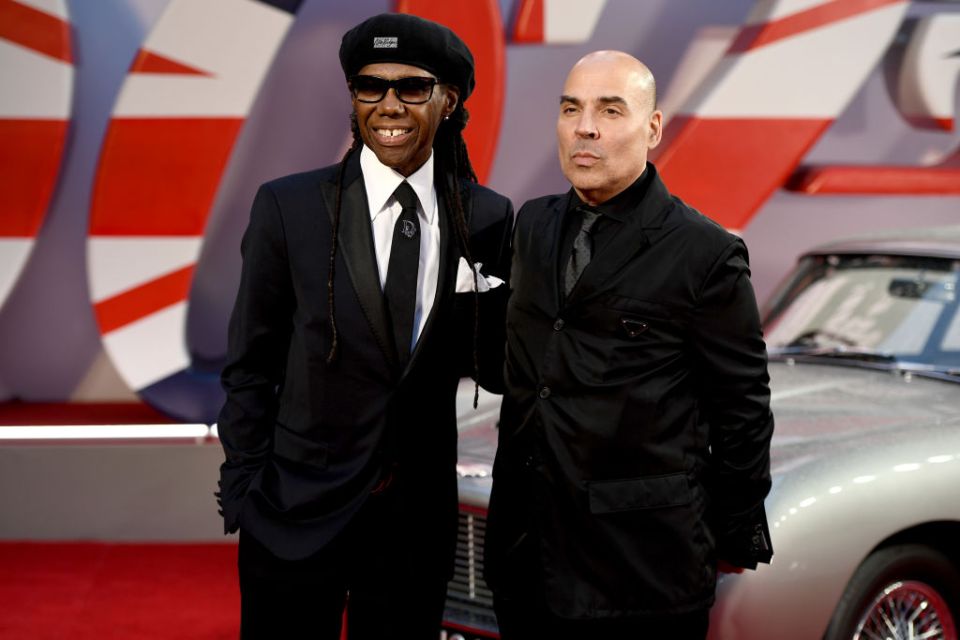Papa wasn’t a Rolling Stone? You can still be an investor in their top songs

A Rolling Stones song could soon be a better investment than property, as top hits quickly become an asset class of their own luring in investors, writes Elena Siniscalco
It is hard to think of an asset class that brings a predictable, reliable income while being unaffected by macroeconomic conditions. It’s not oil, and it’s not gold, but it could be a Rolling Stones song.
Music has become the new money jar for fund managers. The idea of execs in suits strategising over whether to bet money on Shakira’s songs might be a little unsettling, but music and money have always rubbed shoulders. Now, in the era of streaming, investing in music isn’t simply the purview of record labels.
There are not many players in this game, and they’re broadly divided into music rights buyers and music marketplaces. The buyers acquire the rights to the most loved hits of all time; the marketplaces allow investors to “bet on songs”.
Hipgnosis, Merck Mercuriadis’ brainchild, was the first to open the game in 2018. Mercuriadis, the former manager of artists like Elton John and Beyonce, wanted to shake up the way intellectual property is managed. He imagined an alternative universe in which major labels don’t control the cash flow from the biggest hits, a universe in which songwriters, and not only pop stars, make a lot of money. And obviously, he wanted to make some money himself.
He says convincing artists to sell their rights was never difficult – he was already a well-trusted insider in the industry. Songs are “metaphorical children” for artists, so these transactions are always “highly emotional”. But artists “want the songs to be in the hands of someone like me”, he proclaims without a bit of doubt.
What Hipgnosis does, in simple terms, is raise money from investors and spend it on the intellectual property rights of chart toppers. It owns nearly 25 per cent of all songs played over a billion times on Spotify, and 16 out of the top 40 UK best-selling albums of the first six months of this year. The company de-risks by only purchasing songs that are likely to have a long lifespan, and to be played over and over again. It portrays itself as a better alternative to normal publishers and record labels because it “cares about the songwriting community”, in Mercuriadis’ words.
Realistically, it will start making even more money once Spotify fully penetrates markets like China and India. “This will have a big value for our investment,” the manager-turned-CEO says with a smile.
Mercuriadis is far from alone in seeing music as more than an abstract craft. Or perhaps, it is precisely this emotional quality that makes music worth the money: the more a song means to people, the higher its value. People want to invest in it, whether they’re fans, family offices or retail investors.
It’s for them that music marketplaces like ANote started springing up. A former fund manager, co-founder Marzio Schena said he had the business idea while watching San Remo, an iconic Italian music festival. In the way only a fund manager could, he started “looking at music from a business perspective, as a long asset class” while following the festival on the telly. He had the crazy idea of creating a marketplace that connected investors and music rights owners.
Today, ANote comprises more than 25,000 investors who see an average annualised return of 10.76 per cent. It has its own catalogues; investors can chip in and buy shares. Then every time a song is played, they make a bit of money. So effectively artists sell to ANote their stream of royalties for “any value between £100k and £1.6m”, says Schena.
Again, it all goes back to streaming. Schena says this market is so recent because only streaming made it possible. No one was interested in investing in the music industry when it was close to impossible to properly calculate streams of royalties, given we were all listening to music illegally and downloading songs through Limewire. Now thanks to Spotify, every time someone presses play someone else makes a bit of money. “The moment there is more money in the industry, it flows to everyone”, says Schena. One can only hope he’s right.
There is movement in the creative industry, and dissatisfaction with power dynamics, as the Hollywood actors and writers’ strikes show. Mercuriadis says this hasn’t happened in the music industry yet only because of “the control that major labels have over major publishers”. How much benefit artists – especially songwriters – gain from selling to something like Hipgnosis or ANote, is a bit early to tell. What’s sure is that this market of trading on lyrics has yet to boom fully; once it does, your favourite Justin Timberlake song might be a better investment than property.